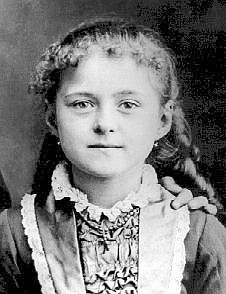Stabat Mater Dolorosa: At the Cross Her Station Keeping
"Even Mary, the Mother of Jesus, knew that through His death, man would be redeemed, and yet She cried and suffered, and suffered much."
| STABAT Mater dolorosa iuxta Crucem lacrimosa, dum pendebat Filius. | AT, the Cross her station keeping, stood the mournful Mother weeping, close to Jesus to the last. |
| Cuius animam gementem, contristatam et dolentem pertransivit gladius. | Through her heart, His sorrow sharing, all His bitter anguish bearing, now at length the sword has passed. |
| O quam tristis et afflicta fuit illa benedicta, mater Unigeniti! | O how sad and sore distressed was that Mother, highly blest, of the sole-begotten One. |
| Quae maerebat et dolebat, pia Mater, dum videbat nati poenas inclyti. | Christ above in torment hangs, she beneath beholds the pangs of her dying glorious Son. |
| Quis est homo qui non fleret, matrem Christi si videret in tanto supplicio? | Is there one who would not weep, whelmed in miseries so deep, Christ's dear Mother to behold? |
| Quis non posset contristari Christi Matrem contemplari dolentem cum Filio? | Can the human heart refrain from partaking in her pain, in that Mother's pain untold? |
| Pro peccatis suae gentis vidit Iesum in tormentis, et flagellis subditum. | Bruised, derided, cursed, defiled, she beheld her tender Child All with bloody scourges rent: |
| Vidit suum dulcem Natum moriendo desolatum, dum emisit spiritum. | For the sins of His own nation, saw Him hang in desolation, Till His spirit forth He sent. |
| Eia, Mater, fons amoris me sentire vim doloris fac, ut tecum lugeam. | O thou Mother! fount of love! Touch my spirit from above, make my heart with thine accord: |
| Fac, ut ardeat cor meum in amando Christum Deum ut sibi complaceam. | Make me feel as thou hast felt; make my soul to glow and melt with the love of Christ my Lord. |
| Sancta Mater, istud agas, crucifixi fige plagas cordi meo valide. | Holy Mother! pierce me through, in my heart each wound renew of my Savior crucified: |
| Tui Nati vulnerati, tam dignati pro me pati, poenas mecum divide. | Let me share with thee His pain, who for all my sins was slain, who for me in torments died. |
| Fac me tecum pie flere, crucifixo condolere, donec ego vixero. | Let me mingle tears with thee, mourning Him who mourned for me, all the days that I may live: |
| Iuxta Crucem tecum stare, et me tibi sociare in planctu desidero. | By the Cross with thee to stay, there with thee to weep and pray, is all I ask of thee to give. |
| Virgo virginum praeclara, mihi iam non sis amara, fac me tecum plangere. | Virgin of all virgins blest!, Listen to my fond request: let me share thy grief divine; |
| Fac, ut portem Christi mortem, passionis fac consortem, et plagas recolere. | Let me, to my latest breath, in my body bear the death of that dying Son of thine. |
| Fac me plagis vulnerari, fac me Cruce inebriari, et cruore Filii. | Wounded with His every wound, steep my soul till it hath swooned, in His very Blood away; |
| Flammis ne urar succensus, per te, Virgo, sim defensus in die iudicii. | Be to me, O Virgin, nigh, lest in flames I burn and die, in His awful Judgment Day. |
| Christe, cum sit hinc exire, da per Matrem me venire ad palmam victoriae. | Christ, when Thou shalt call me hence, by Thy Mother my defense, by Thy Cross my victory; |
| Quando corpus morietur, fac, ut animae donetur paradisi gloria. Amen. | While my body here decays, may my soul Thy goodness praise, safe in paradise with Thee. Amen. |
| From the Liturgia Horarum. Translation by Fr. Edward Caswall (1814-1878)The Stabat Mater speciosa: By the Crib Wherein Reposing Stabat Mater speciosa is considered one of the seven greatest Latin hymns of all time and one of the tenderest. It is based upon the Gospel account of the birth of Jesus. The hymn originated in the 13th century and has been attributed to Jacopone da Todi (1230-1306). There is a mirror image to this hymn, Stabat Mater dolorosa, which echoes the sorrows of the Blessed Virgin Mary at the crucifixion and death of Jesus.
|
Labels: At the Cross Her Station Keeping, Cheerful Lent, Feast of the Annunciation of the Blessed Virgin Mary, Padre Pio, St Padre Pio, Stabat Mater, Stabat Mater dolorosa, Stabat Mater speciosa



























0 Comments:
Post a Comment
<< Home